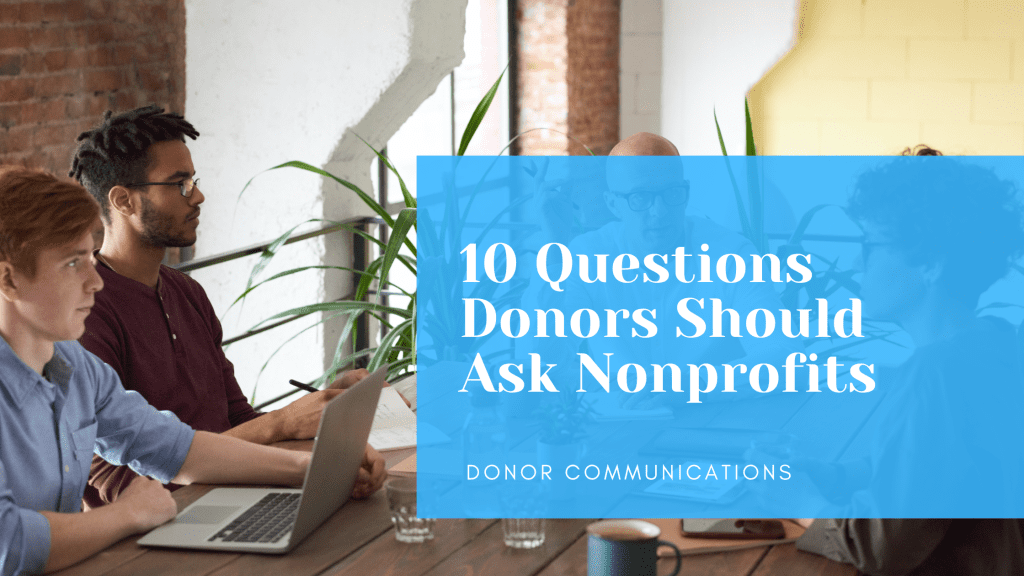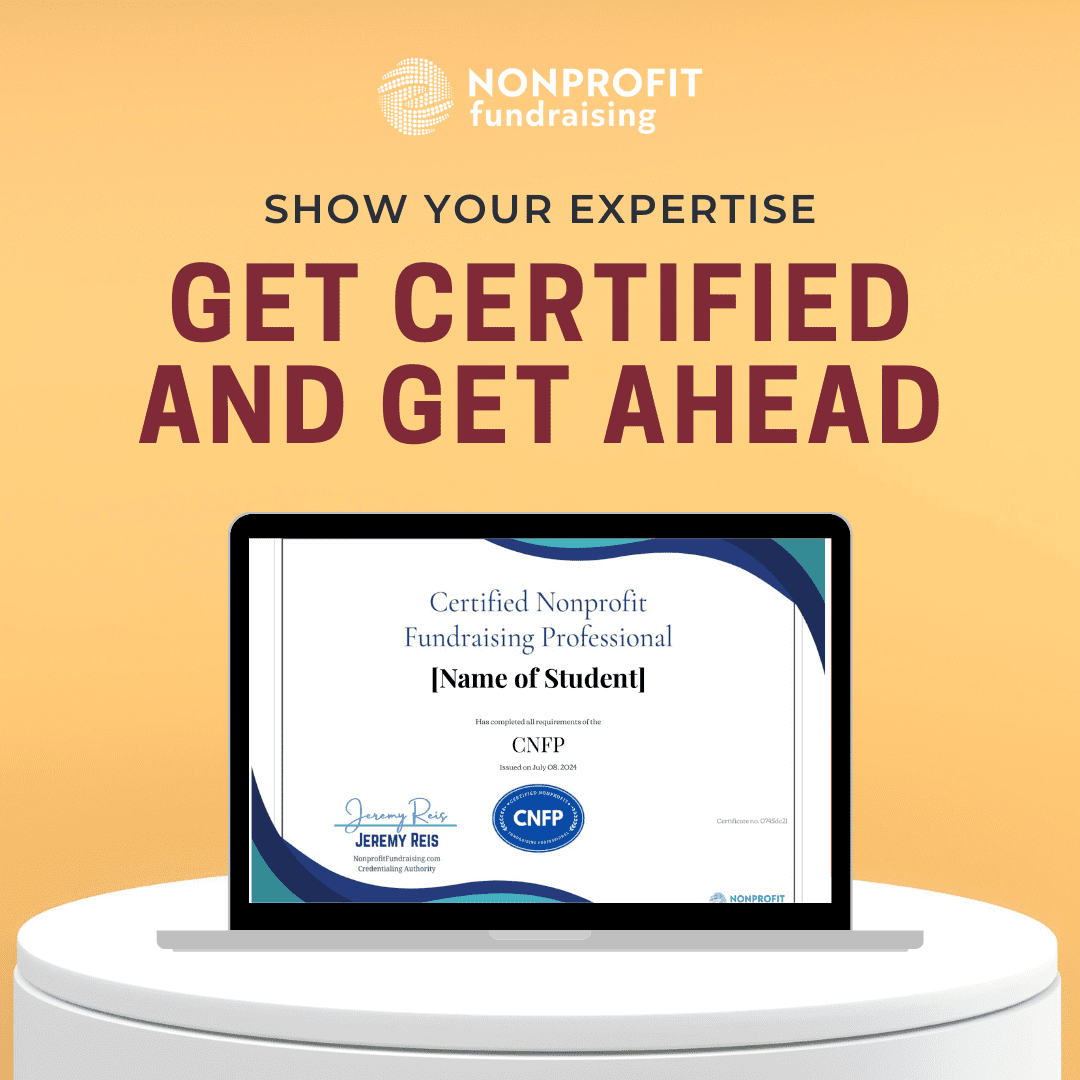As a donor, you have the power to make a real difference in the world. But how can you be sure that your donation is going to have the maximum impact? By doing your homework and asking the right questions, that’s how! Here are 10 questions donors should ask nonprofits before making a donation:
1. What is the nonprofit’s mission?
 As a donor, it is important to know what a nonprofit’s mission is. The mission statement can tell you a lot about an organization, including what they hope to accomplish and how they plan to go about doing it. Asking a potential recipient organization about their mission is a great way to get a better sense of whether or not they are a good fit for your charitable giving.
As a donor, it is important to know what a nonprofit’s mission is. The mission statement can tell you a lot about an organization, including what they hope to accomplish and how they plan to go about doing it. Asking a potential recipient organization about their mission is a great way to get a better sense of whether or not they are a good fit for your charitable giving.
Additionally, inquiring about the mission can help you gauge an organization’s level of commitment to their cause. Organizations that are clear and concise in their mission statements are more likely to be effective in achieving their goals. Those that are vague or have multiple conflicting missions may be less successful in executing their programs and achieving results.
2. What are the organization’s specific goals and objectives?
Asking this question will help you to understand how the organization plans to use your donation and whether or not their goals align with your own personal values. Furthermore, it is important to ensure that the organization has a clear plan for how they intend to achieve their goals. Without a well-defined plan, there is a danger that your donation will be used ineffectively or even wasted.
There are a few key things to look for when evaluating an organization’s goals and objectives. First, you want to make sure that the goals are realistic and achievable. Secondly, you want to ensure that the goals are properly aligned with the mission of the organization. Lastly, you want to make sure that the goals are measurable so that you can track the progress of the organization over time.
3. How does the nonprofit plan to achieve its objectives?
Once you know what an organization’s goals are, you can start to assess whether or not its plans for achieving those goals are realistic. Does it have a solid strategy in place? Is there evidence that its approach has been successful in the past? If not, there’s a good chance that your donation won’t be used as effectively as it could be. Sorting through all of this information can be daunting, but donors who take the time to do their research tend to be more satisfied with their giving experiences overall. And when you’re happy with your donations, everyone wins.
4. Who leads the organization, and what is their experience?
One of the most important factors to consider when researching a potential donation is the organization’s leadership team. The individuals leading the charge at a charitable organization can have a significant impact on how effectively the organization functions.
Leadership is critical to any organization’s success, and that’s especially true for nonprofits. A nonprofit’s leader sets the tone for the entire organization, which shapes how staff members interact with clients and carry out the organization’s mission. That’s why it’s so important for donors to know who leads the nonprofit they’re considering supporting.
Leadership experience is also important. An experienced leader will have a better understanding of how to navigate the challenges nonprofits face. They’ll also be more likely to have developed relationships with other leaders in the nonprofit sector, which can benefit the organization in a number of ways.
5. How often will I receive updates about how my donation is being used?
As a donor, it is important to stay up-to-date on how your donations are being used. This allows you to see the impact of your donation and allows the charity to build trust with you as a donor. Charity Navigator reports that 80% of donors would give more to a charity if they knew their donations were going to specific programs, and not just general operating expenses.
Another reason why donors should ask about updates is that it allows them to hold the charity accountable. If a charity is not living up to its promises, donors have a right to know. Asking for updates also allows donors to provide feedback to the charity about what is working and what isn’t.
6. What are the organization’s finances like?
Organizations should be transparent about their finances in order to build trust with potential donors. If an organization is not forthcoming about its financials, it could be a red flag that they are not being transparent in other areas as well.
By looking at an organization’s financials, donors can get a sense of its long-term sustainability. If an organization is not in a strong financial position, there is a risk that it will not be able to continue operating, which would mean that future donations would not have the same impact.
7. How is the nonprofit governed?
Governance is the process by which an organization makes decisions. It includes the formulation of goals, the selection of decision-makers, the delegation of authority, and the establishment of accountability mechanisms. Good governance ensures that an organization’s actions are aligned with its mission and that its resources are used efficiently and effectively.
Board members of nonprofits are fiduciaries. They have a duty of care to the organization and its beneficiaries. The IRS considers them “trustees.” As such, donors can reasonably expect that their money will be used in accordance with the mission of the charity and in a way that furthers the public interest.
8. How effective has the nonprofit been in achieving its mission?
This question gets to the heart of what you want to know: whether or not the nonprofit is actually making a difference. To get a clear answer, you’ll need to look at their track record. What results have they achieved so far? How have they been able to help their beneficiaries? What impact have they made in their target community? All of these factors will give you a good sense of how effective the nonprofit has been in achieving its mission.
Another important question to ask is “What does this nonprofit do differently from other similar organizations?” This will help you understand what makes this particular organization unique and why they may be more effective than others in achieving their mission. When evaluating nonprofits, it’s important to remember that not all organizations are created equal. Some may be more effective than others due to their innovative approach or because they provide much-needed services in underserved communities. By taking the time to ask this question, you can ensure that you’re donating to an organization that is truly making a difference.
9. What is the nonprofit’s impact on the community it serves?
In its simplest form, impact is the difference between what is and what could be. When it comes to philanthropy, impact refers to the difference that a nonprofit makes in the lives of those it serves. For example, if a nonprofit provides job training to low-income individuals, its impact would be measured by how many of those individuals go on to get jobs and support themselves and their families.
Not all nonprofits are equally effective at creating impact. Some organizations are more efficient than others, and some have more experience or expertise in specific areas. Therefore, it is important for donors to research the nonprofits they are considering supporting and ask questions about their impact.
The best way to measure impact is through outcomes data. Outcomes data measures the results of a nonprofit’s programs and activities and compares them to specific goals and objectives. For example, if a nonprofit’s goal is to reduce crime in a particular neighborhood, its outcomes data would track changes in crime rates over time. If crime rates go down after the nonprofit begins operating in the area, that would be an indication that the nonprofit is having a positive impact.
10. What are the risks and challenges facing the organization?
Asking about risks and challenges gives you a better understanding of the organization’s strengths and weaknesses. This information can help you decide whether or not the organization is worth investing in. Furthermore, it shows that you are interested in more than just writing a check; you want to see the organization succeed and are willing to help them overcome hurdles.
No organization is perfect, and it’s important to understand what challenges an organization is facing before you donate. What are the risks inherent in its work? What might prevent it from achieving its goals? Answering these questions will help you decide whether or not you’re comfortable supporting an organization and how best to do so.
Remember, when it comes to charitable giving, donors should always do their homework first. By asking these 10 questions, you can get a better sense of how your donation will be used and whether or not the organization is a good fit for your philanthropic goals.

